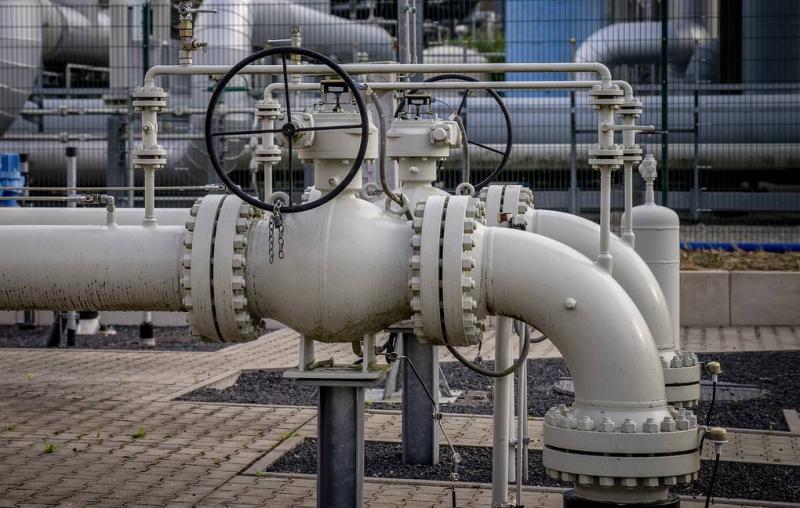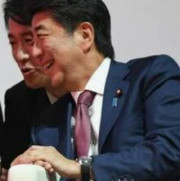
© AP Photo/Michael Probst/TASS
Top stories from the Russian press on Tuesday, July 26th, prepared by TASS
Kommersant: Gazprom warns about further gas cuts via Nord Stream
Gazprom was one step away from shutting down gas deliveries via Nord Stream. Pumping will be reduced to 20% of the line's design capacity beginning July 27 due to the shutdown of another Siemens turbine at the Portovaya compressor station. Until now, for more than a month, the gas pipeline has been operating at 40% capacity, seriously hurting gas injection into Europe’s underground gas storage facilities (UGS). The situation is further complicated by the fact that Gazprom demands guarantees for the total removal of sanctions on the equipment for Portovaya, including an official explanation from the European Commission, Kommersant writes.
From July 27, Gazprom will reduce the flow of gas through Nord Stream to 20% of its nominal capacity, or to 33 mln cubic meters of gas per day. As a result, the volume of delivery along the traditionally busiest route to Europe will now be less than that along the Ukrainian route, which presently transports roughly 41.7 mln cubic meters per day.
One turbine for Portovaya, which was undergoing repairs in Canada, is already on its way back to Russia. However, Siemens, which carried out the repair, is unable to import it because Gazprom is requiring more documentation to verify that the turbine's return does not breach Canadian, EU, and UK sanctions.
Sources familiar with the position of Gazprom explained to Kommersant that the gas giant insists on completely eliminating any sanctions risks that could affect the supply of engines to Russia. To do this, Gazprom seeks an official explanation from the European Commission that the transport of gas turbines to Russia via EU countries is not prohibited.
According to Ivan Timonin from Vygon Consulting, since mid-June, when the volume of pumping through the Nord Stream was decreased to 69 mln cubic meters per day, European UGS facilities have been refilled daily by an average of 383 mln cubic meters of gas. He stated that if EU countries do not take immediate steps to curb consumption, the figure in August is projected to fall to 346 mln cubic meters. In this situation, stocks in Europe’s UGS facilities will be able to reach 76.1% by the beginning of November, in comparison with the target of 80%.
Izvestia: Istanbul grain deal won’t curb Russia’s special operation
The Istanbul grain agreement is not curbing Russia's strikes against Ukrainian military facilities. Thus, Moscow will carry on with the special operation, Russian Foreign Minister Sergey Lavrov stated during a visit to the Republic of the Congo, the first in over 60 years of Russian-Congolese relations. In turn, Brazzaville urges both parties to return to the negotiating table. Meanwhile, experts interviewed by Izvestia believe that Africa is currently in the spotlight of Russian foreign policy.
The Russian military conducted a surgical missile strike on a Harpoon missile depot and a Ukrainian ship in the port of Odessa on July 23, according to the Russian Defense Ministry's press service. "There is nothing in Russia's obligations, even in the agreements signed on July 22 in Istanbul, that would impede the continuation of the special military operation destroying military facilities and other military targets," Lavrov explained. According to him, the sites were located in the Odessa port’s military unit at a considerable distance from the granaries.
In turn, Minister of Foreign Affairs of the Republic of the Congo Jean-Claude Gakosso noted that Brazzaville's position is based on the opinion of the African Union and calls for both sides to return to the negotiating table. That being said, the Congolese top diplomat praised the Istanbul Agreement.
Turkish political scientist Kerim Has explained to Izvestia that Russia guaranteed it would not use the de-mining of grain routes for further attacks on Ukrainian ports. "However, this does not preclude Russia from striking military facilities in ports. The Ukrainian side should also not take advantage of the fact that the opening of harbors allows Kiev to enhance its military presence in ports, or to deploy anti-ship missiles there," the expert specified.
Professor at HSE Irina Filatova told Izvestia that Africa is now essential in Russian foreign policy. "First, because of food exports. It is obvious that the minister's visit is attributed to the recently concluded grain deal in Turkey. Second, the relationship with African countries is different from that of Europe and the United States. Many nations of the region remained neutral in voting in the UN General Assembly. Some supported the Russian Federation," the expert clarified.
Kommersant: Pelosi's Taipei tour threatens to spark US-China military confrontation
China’s Foreign Ministry announced that the Chinese government is prepared to take "strong measures" to protect national sovereignty if Speaker of the US House of Representatives Nancy Pelosi visits Taiwan. According to media reports, Beijing's response may include imposing a no-fly zone over Taiwan and even launching a full-scale amphibious operation. Meanwhile, despite Pentagon concerns, Pelosi does not appear to be canceling the trip just yet, Kommersant writes.
According to sources with the Financial Times, China is determined to go further than usual, when Beijing's reaction has been limited to strident statements. In this sense, the White House is looking into whether Beijing is indeed teetering on the verge of a conflict seeking to cancel Pelosi's trip. The Biden administration and the US Congress have yet to determine how far they can afford to go in displaying their support for Taiwan. Meanwhile, the Pentagon sees things differently, actively cautioning Nancy Pelosi against making the trip.
"Taiwan has been the most pressing subject for Beijing in recent decades, emotionally, historically, and politically. It appears that this issue was gradually resolved during 'cross-strait negotiations' and the implementation of the concept of 'one country, two systems,' but the situation has changed dramatically and has now become critical due to US efforts," Director of the Institute of Asian and African Studies at Moscow State University Alexey Maslov told Kommersant. According to the expert, bringing things to a "hot phase" would change the entire current model of China's development, which is based on handling problems "peacefully and diplomatically."
In turn, Washington’s main goal is to ramp up the existing problems around China, causing Beijing to become engrossed in resolving them, Maslov added. "They are daring Beijing: if it does not take significant action, it will be seen as military and political weakness, but if it attacks Taiwan, it would be seen as an aggressor," the expert concluded.
Vedomosti: Russia may pour $1.5 bln into railway projects in Iran
Russia intends to invest $1.5 bln in the construction of the International North-South Transport Corridor (INSTC) until 2030, the Ministry of Transport said in a presentation, its authenticity was confirmed to Vedomosti by a source close to the ministry. According to the presentation, Russian Railways is expected to assist in the development of the corridor connecting India, Iran, and Russia by constructing a line from the border city of Astara in Azerbaijan to the city of Rasht in Iran and electrifying the Garmsar-Inche Burun line in Iran.
According to the Institute for Economics and Transport Development, the volume of cargo transportation along the Russian section of the INSTC in 2020 reached 6.3 mln tonnes. The estimated capacity of the corridor is up to 30 mln tonnes of cargo per year. The construction of the railway from Rasht to Astara will boost freight traffic along the corridor by 3-10 mln tonnes per year, the Transport Ministry said in the presentation.
There is hope that advancing the project would be much more active in the new geopolitical settings than over the past 20 years, Research Fellow at the Institute for International Studies at MGIMO University Adlan Margoev told Vedomosti. "The structural difficulty was that Iran was under sanctions for the majority of this time. It was risky and unappealing for significant Russian businesses to cooperate with Iran because of the fear of secondary sanctions from the US," he said, adding that this barrier is virtually gone now that both the Iranian and Russian economies are sanctioned.
Implementing the Iranian projects may take 3-5 years, leading expert at Finam Management Dmitry Baranov told the newspaper. Despite the estimated cost of constructing the two projects at $3.5 bln, taking into account the money invested previously and decreased building material prices, "it is possible to keep it within $1.5-2 bln," managing director of the NRA rating service Sergey Grishunin noted. He anticipates that payback will take 10-15 years.
Izvestia: Why WHO declared monkeypox a global emergency
The World Health Organization (WHO) has declared the spread of monkeypox a global emergency. Experts told Izvestia that the new status will increase funding for research, development of vaccines and drugs to combat this disease. There are already 16,000 infected around the world. In a number of countries, anti-epidemic restrictions may be introduced in the near future. As for Russia, they are likely to be limited to random checks of flights from abroad, experts believe.
According to WHO Director General Tedros Adhanom Ghebreyesus, the most important task is to collect information about the various variants of the virus and the circumstances that accompany the spread of the disease. He cited as an example the countries of Central Africa, where around 1,500 alleged cases of monkeypox and about 70 deaths have been registered there since the beginning of the year. But at the same time, virtuallynothing is known about how these people fell ill and how they died.
An international health emergency is declared when a disease occurs that poses a danger to a large number of people, Director of the Scientific Information Center for the Prevention and Treatment of Viral Infections, virologist Georgy Vikulov told Izvestia. "The disease has spread beyond Africa and spread widely, this is already enough to declare an emergency," he explained.
In addition, the new status of monkeypox will increase funding for new research and development in this area, the virologist believes. The introduction of restrictive measures is also possible, Vikulov noted.
Meanwhile, large-scale restrictive measures are irrelevant for Russia at the moment, the expert believes. At the moment, one case of monkeypox was discovered in Russia.
The situation with the diagnosis and control of monkeypox in Russia is still quite favorable and controlled, professor Anatoly Alshtein from the Gamaleya Research Institute of Epidemiology and Microbiology told the newspaper.









